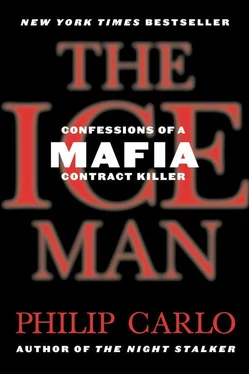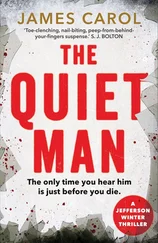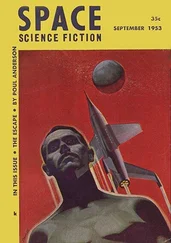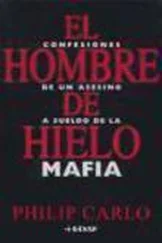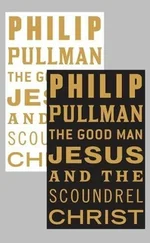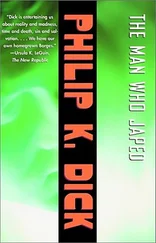Located just next to Hoboken, Frank Sinatra’s hometown, Jersey City was a rough-and-tumble town filled with hard-boiled blue-collar workers and their hard-boiled blue-collar offspring. This was a place where a kid quickly learned to defend himself or was victimized and bullied. The strong were respected and prospered. The weak were marginalized and put-upon.
Richard Kuklinski’s mother, Anna McNally, grew up in the Sacred Heart Orphanage on Erie and Ninth Streets. Her parents had emigrated from Dublin in 1904 and settled in Jersey City, which was then the tenth largest city in America. Anna had two older brothers, Micky and Sean. Shortly after the family arrived in Jersey City, Anna’s father died of pneumonia and her mother was killed when a truck ran her down on Tenth Street. Anna and her brothers wound up in the orphanage. Though skinny and malnourished, Anna was a physically attractive child with dark, almond-shaped eyes and flawless cream-colored skin.
In the Sacred Heart Orphanage, religion was forced upon the children, and Anna had the fear of God, hell, and damnation beaten into her by sadistic nuns who treated their charges as though they were personal servants and whipping posts. Before Anna was ten years old she was sexually accosted by a priest, and she lost both her virginity and a part of her humanity, and grew into an austere, cold woman who rarely smiled and came to view life through hard, unfeeling dark eyes.
When, at eighteen, Anna was forced to leave the orphanage, she went into a Catholic convent, planning to become a nun herself. She had no skills as such and nowhere else to turn. But Anna was not cut out for the pastoral life. She soon met Stanley Kuklinski at a dance sponsored by the church, and her destiny was sealed.
Stanley Kuklinski had been born in Warsaw, Poland, and immigrated to Jersey City with his mother and father and two brothers. At twenty-six, when Stanley met Anna, he cut a handsome figure, resembling Rudolph Valentino. He wore his hair parted in the center and slicked back tight against his scalp as was the fashion of the day. Stanley was smitten by Anna and pursued her relentlessly, and she agreed to marry him some three months after they met. They wed in July of 1925, and their wedding picture shows a particularly good-looking couple who appeared well matched, a union that held much promise. Anna had grown into a truly beautiful woman. She resembled Olivia de Havilland in Gone with the Wind.
Stanley had a reasonably good job as a brakeman for the Lackawanna Railroad. It was not hard work as such, though it was always outdoors and he regularly suffered under the summer heat and the frigid, brutal winters. At first the hasty union between Stanley and Anna seemed a good one. They rented a cold-water flat in a two-story clapboard house on Third Street, just down the block from St. Mary’s Church. But Stanley liked to drink, and when he drank he became short-tempered and mean, and Anna soon came to know that she had married a jealous, possessive tyrant who would beat her as if she were a man for the slightest provocation. Because Anna was not a virgin on their wedding night—she could never bring herself to tell her husband that she’d been raped by a priest over and over again—Stanley accused her of being a tramp, a whore. She hated this but stoically suffered through his verbal abuse, which all too often became violent. Stanley was not a large man, but he was strong as a Brahma bull. When drunk he’d toss Anna about like she was a weightless rag doll. Anna was tempted to tell her brother Micky about the abuse, but she didn’t want to make a bad situation worse, and divorce wasn’t even an option back then. Anna was still hyper-religious, and good Irish Catholics did not divorce, period. Anna learned to accept her lot in life.
In the spring of 1929, Anna gave birth to a baby boy, one of four children she’d eventually have with Stanley before the marriage soured and finally ended. They named him Florian after Stanley’s father. Anna had little memory of her own parents; the only memories she had of her childhood were bad ones—beatings and abuse.
Anna was hoping Stanley would mellow with a child in the house, but just the opposite happened. When drinking he took to accusing Anna of infidelity, even said Florian was not his, that she had fucked another man while he was away working.
Sometimes Stanley was kind to young Florian, but for the most part he seemed indifferent to the child, and it didn’t take long for Stanley to start beating Florian, too. If Florian cried he got hit, if Florian dirtied his bed he got hit, and Anna could do nothing. Her answer was to go to St. Mary’s down the block and light candles and pray. There was nowhere else for Anna to turn, and she grew to loathe Stanley and often thought of leaving him, even killing him, but none of that ever came to pass.
Still, Stanley frequently had sex with Anna whether she wanted to or not. He considered himself quite the ladies’ man and was often on Anna without notice or warning or any kind of foreplay: wham, bam, it was over.
Anna became pregnant a second time and gave birth to another boy on April 11, 1935, and they named this child Richard. He was a mere five pounds and had a thick head of shiny hair so blond it seemed white.
With mounting bills and another mouth to feed, Stanley became even meaner and more remote. When he came home on Friday night he was always drunk, and often had the smell of other women about him and lipstick on his collar, but Anna could do little, for Stanley would beat her at the drop of a hat. He viewed her as his personal property to be used and abused any way he wished. Worse, he took to beating Florian and Richard for both real and imagined infractions, and both boys grew to fear and dread their father, becoming sullen and quiet, painfully shy. Stanley always wore a thick black garrison belt, and he’d quickly slide it off and lay into his sons with it, mercilessly whipping them. If Anna tried to intercede, she too was beaten. Violence seemed to fuel Stanley’s sexual appetite—often, after beating his wife and young sons, he wanted to have sex, and before Anna knew it he was forcing himself inside her.
As far back as Richard could remember, his father was beating him. He recently related: When my father—father, that’s a joke—came home and I said “Hello,” he’d say hello by slapping me across the face.
Stanley drank hard whiskey with beer chasers—boilermakers. When he drank he became even meaner and his violence grew more indiscriminate. He took to wrapping his garrison belt around his hard-knuckled fist and punching his sons with it. It was like being struck by a two-by-four. He was fond of hitting them in the head with his belted fist, and often knocked both Florian and Richard out cold. Richard became so utterly terrified of his father that he wet his pants just at the sight of him or the sound of his voice, which caused Stanley to become angry and beat the boy for wetting himself. Little by little Stanley was, in effect, beating the very necessary human elements of compassion and empathy out of his second-born, clearly delineating the path Richard’s life would ultimately take.
Finally, Stanley Kuklinski did the unspeakable—he murdered his son Florian with one of his beatings. He hit the frail boy on the back of the head one too many times, knocking the hapless boy to the floor, and Florian never got back up. Stanley made Anna tell family and friends and the authorities that Florian died by falling down the stairs and striking his head. No one questioned their story, and Florian was laid out in the Kuklinski living room, just down the block from St. Mary’s Church, where this ill-matched couple had been wed.
Richard was just five when his brother was killed by Stanley. Anna told Richard that Florian was hit by a car “and died.” Richard had no conception of what death really was. He just knew that Florian was in a cheap wooden coffin that smelled of pine in the living room as if he were asleep, but he would not wake up. His mother and other relatives were there crying, praying, lighting candles, holding shiny black rosary beads, but no matter what, Florian would not wake up. Five-year-old Richard stared at his ghostly pale dead brother, the only friend he had ever known, wondering why he wouldn’t get up. He had always gotten up before….
Читать дальше
